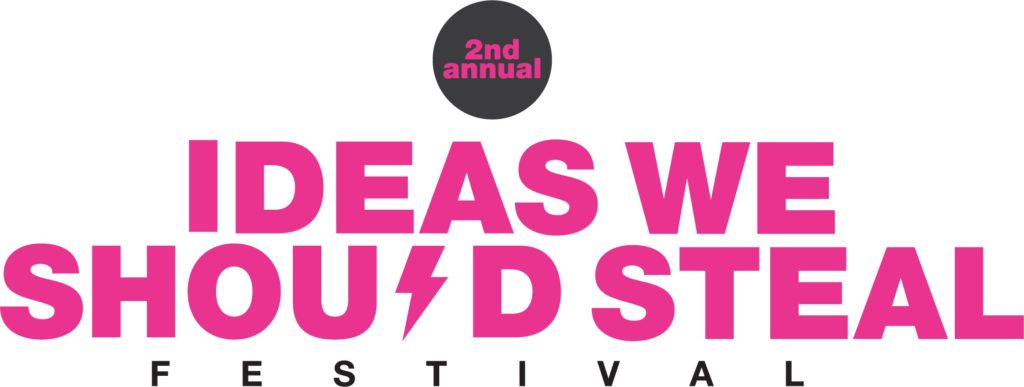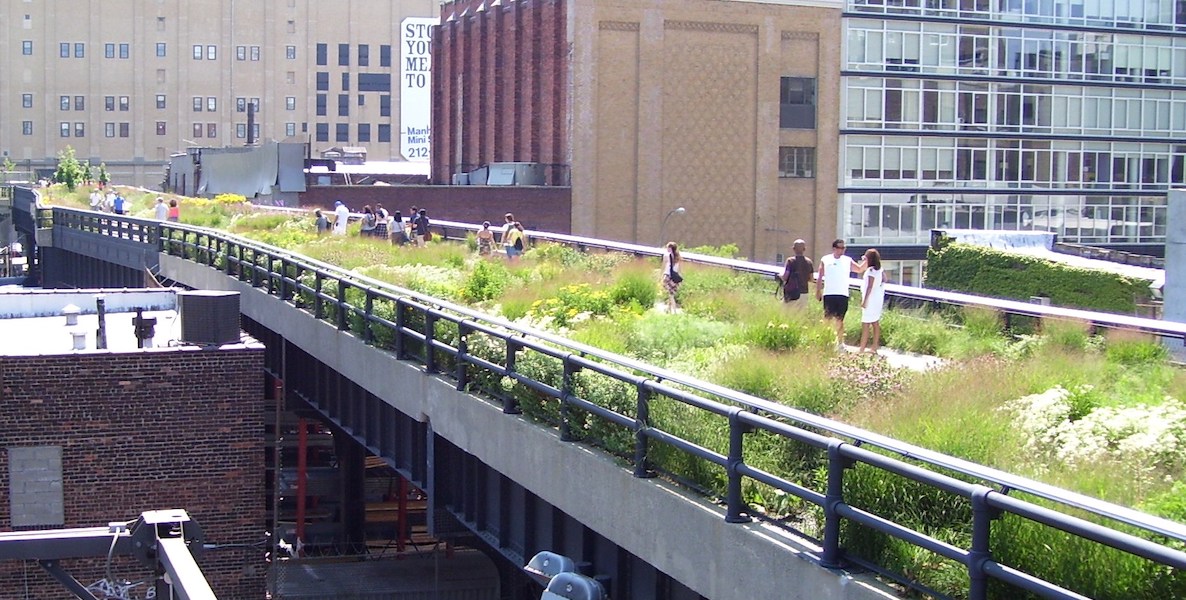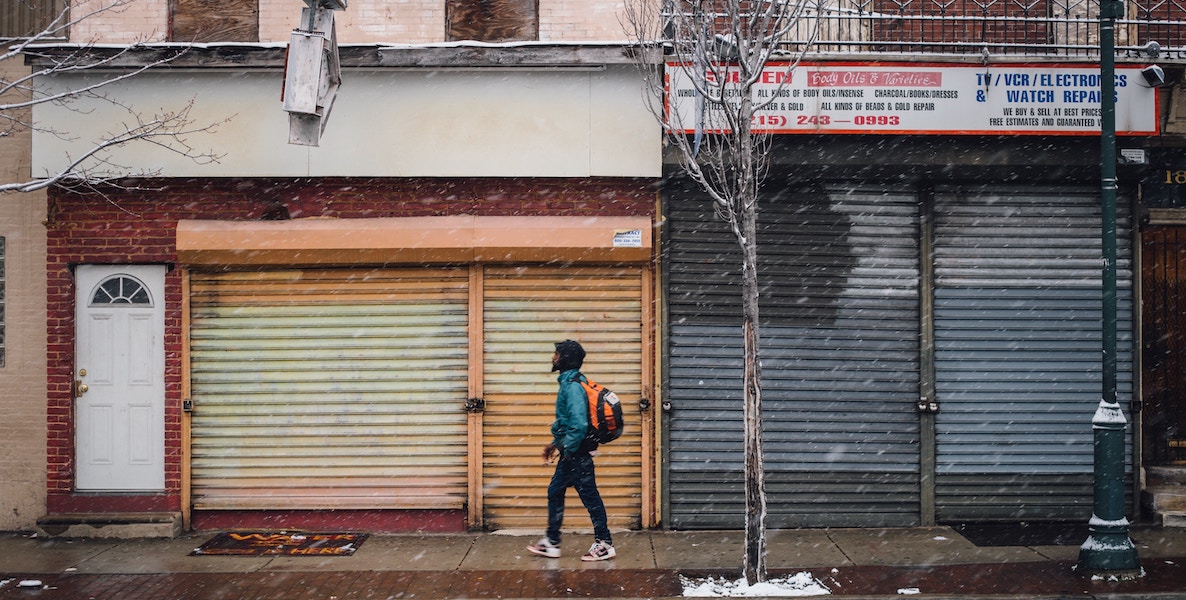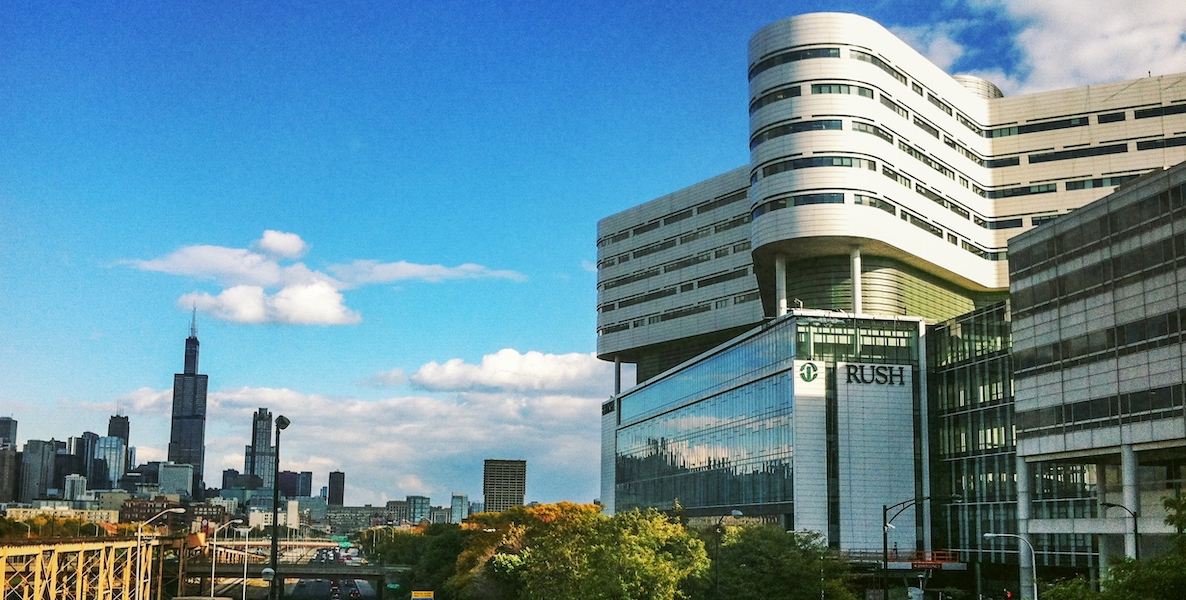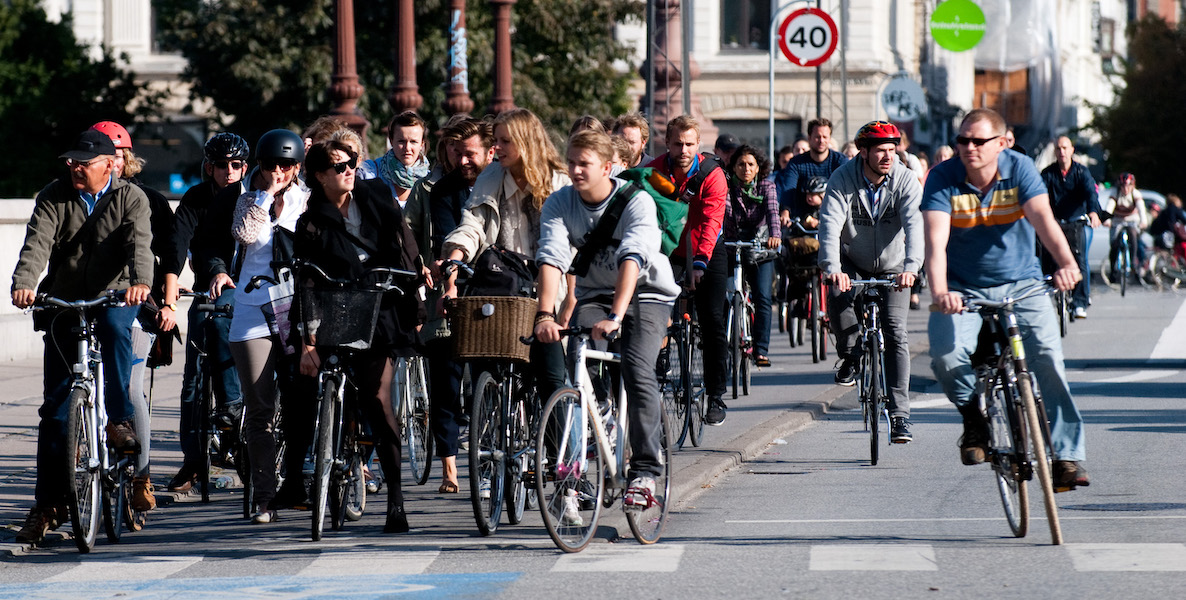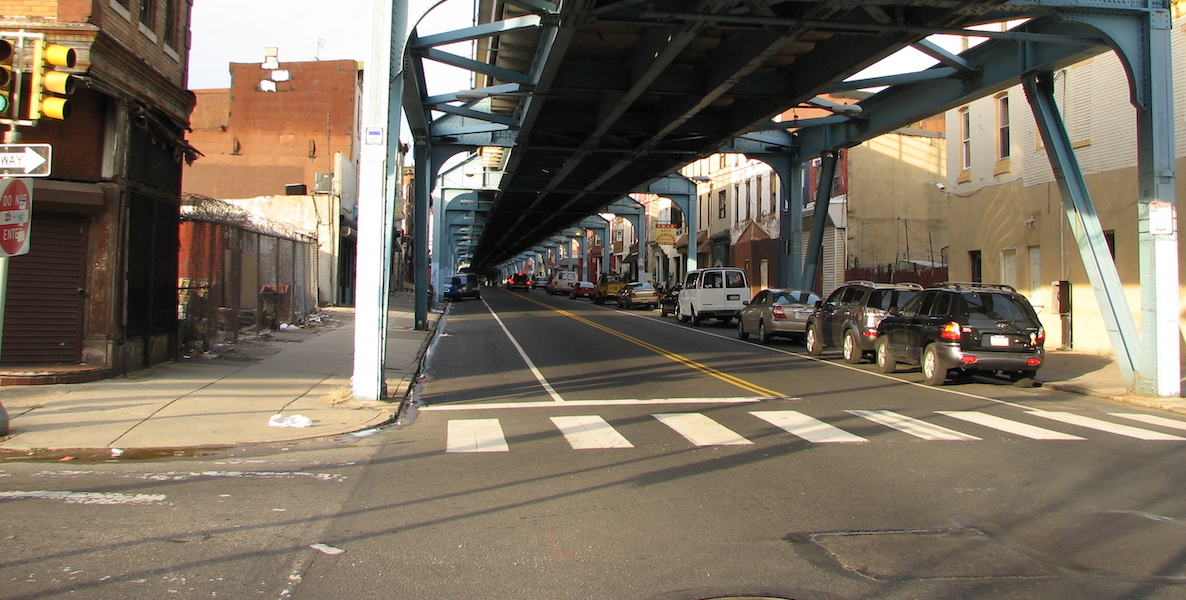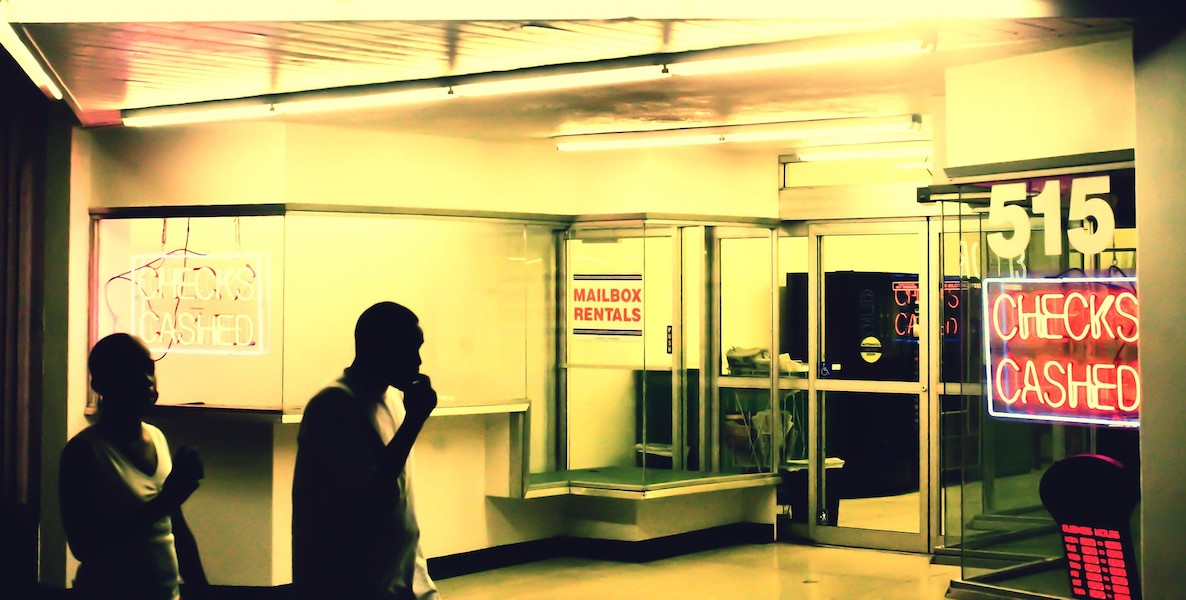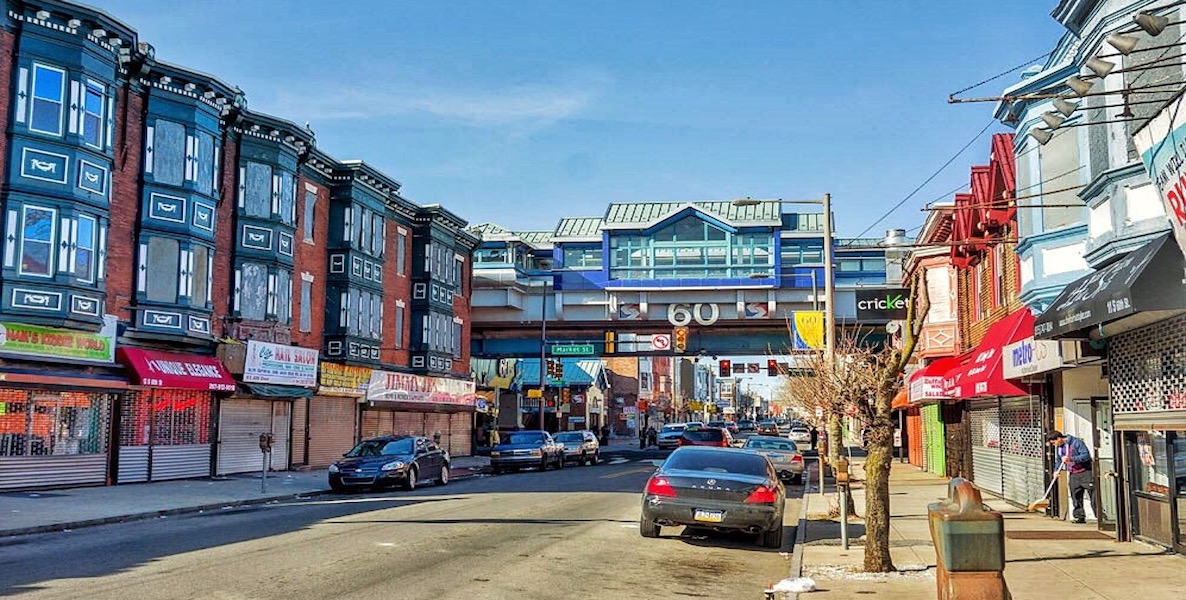You see it everywhere in Philly, and all across the country: barren landscapes of former commercial corridors, often in neighborhoods with a high population of color, that are like symbols of American income inequality.
Bruce Katz, director of Drexel University’s Nowak Metro Finance Lab, has spent a lot of time recently thinking about those neighborhoods in America. Take, for instance, the North Kensington commercial corridor: The commercial strip that used to anchor the neighborhood sits just a few blocks from a Big Box strip mall, where many goods are cheaper—but where all the money goes out of the community into deep pockets. What used to keep the neighborhood alive—mom-and-pop stores that hired local teens to work—have virtually disappeared. And with them, Katz says, has gone the local wealth of communities.
How to join us on December 10Attend the Festival
On Tuesday, December 10, Katz, author with the late Citizen Chairman Jeremy Nowak of The New Localism, will talk to Andrea Zopp, former Chicago deputy mayor and current CEO of World Business Chicago; and La Shon Walker of FivePoint Holdings at The Citizen’s 2nd annual Ideas We Should Steal Festival about how to create and grow wealth in the urban neighborhoods that need it most.
Here, a glimpse into the conversation:
Roxanne Patel Shepelavy: First, let’s define the terms: What do you mean by “inclusive growth?”
BK: Most inclusive growth is about inclusive zoning: Let’s set aside some portion of housing for low- and moderate-income people. Let the economy operate as it does, and let’s bake in some level of inclusion.
What I’m trying to do with Ross Baird [CEO of Blueprint Local] and Accelerator for America is say: Let’s focus on core elements of the economy and ensure that more and more people are participating through entrepreneurship, business formation and business growth. It’s a radically different mindset. I’m intensely focused on growing businesses of people of color, and growing back nodes of commercial activity in our neighborhoods, whether on a commercial corridor or on the street corner.
A lot of the income inequality in this country is not just because we let the wealthy get wealthy, but because we tore the heart out of local communities. It’s not just that we lost entrepreneurs who could fund the good life for themselves; we also lost the local hiring platform for teenagers to get on that path. We’ve ignored this part of community revitalization; we focused on the buildings to the exclusion of everything else.
RPS: How do you build that local business community back from where we are now?
BK: We’re cognizant of the challenges that we’ve created in the world. Go to North Kensington, for example: There’s the North Kensington commercial corridor. A few blocks north of that is a big box development. How do small businesses compete with that? Amazon doesn’t or shouldn’t run the world.
We see some of this success already in communities in both cities and suburbs: Look at immigrant corridors and you’ll see a lot of small businesses that are fairly vibrant. And there are opportunities. The health sector is 18 to 20 percent of GDP of the country. For the health sector to function, it has to be more present in the community, whether through clinics or healthy food. The healthy food portion of the community should be growing like gangbusters; whether it’s farm to market, or franchises, we don’t yet have the business model yet, but we have the demand for it. In these communities, there’s an enormous health spend with not very good outcomes. We could use health resources in a much more productive way. I think there’s a great opportunity there.
On Drexel’s Metro Finance LabGet Schooled
RPS: You have mentioned before that one of the problems is understanding the scope of the problem. What do you mean by that?
BK: The Pew study [from 2016] said 2.5 percent of businesses in the Philadelphia metro area are owned by African Americans. A new piece in the Philly Tribune reported a readjustment of those numbers for Philadelphia to 25 percent. That’s a huge difference; we’re talking apples to oranges. It’s somewhat emblematic of how people have thought about this that we don’t even have consistent numbers on it.
It’s just remarkable to me. How can you solve the problem if you don’t even know the starting point?
A lot of the income inequality in this country is not just because we let the wealthy get wealthy, but because we tore the heart out of local communities.
RPS: I keep coming back to this idea of keeping wealth in the communities—how do you keep wealth there when there is so little of it?
BK: The U.S. does not lack for capital—that’s one of the byproducts of all this income inequality. There is a question about capital access: We don’t really have the right capital fit for minority entrepreneurs. We’re in a world where it’s not just Big Box, but Big Bank. We have SBA [Small Business Association] lending and debt products. Minority business owners start with less family assets, so we need to be rethinking the products we have. There may be an opportunity for equity investments, for example, as we go from the venture capital tech model to something that’s more local and socially impactful.
Stories by Bruce KatzRead More
I really believe we’re at the tail end of a system that didn’t really work well for many people, both from the nation and the neighborhood. We all accepted the notion of going large, treating everyone as a consumer and getting the lowest price. But we’re not treating anyone as a producer, by which I don’t mean so much a manufacturer, but as a business operator.
RPS: This seems to require a whole shift in mindset.
BK: Most of the conversations about income equality begin and end with tax redistribution. But this is not just about letting the rich get richer and not taxing them. It’s a much larger story.
This is solvable, but it requires everyone to step back and treat the U.S. not as some sophisticated leading-edge economy, but as an economy in the middle of a transition. There’s a back-to-basics kind of thinking going on.
We’re seeing some changes, done at low scale but with potential for growth. Shift Capital came in to North Kensington, opened office space there, and is trying to work now with local community organizations to basically pioneer a different type of model. And we’ve seen changes in all different neighborhoods in Philadelphia and the metropolitan area, where commercial corridors have been revived.
We have come to believe there’s nothing you can do in poor minority neighborhoods. I just don’t believe that’s true. You’re not going to go back to where we were; you’ll never have manufacturing jobs back as they were. But could you have a 40 percent shift in occupancy? Absolutely.
Want more community-revitalization news? Check out these related articles:
- New apartment project in Kensington will offer residents a discount if they volunteer
- After decades of disinvestment and disruption, the 60th Street business corridor plots its comeback
- Are Philly’s latest poverty stats the wake-up call Jim Kenney needs?
Header Photo: West Philadelphia Real Estate


